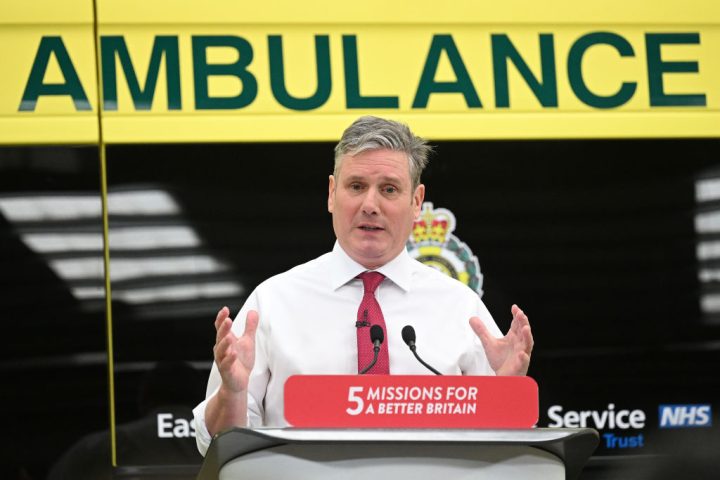For the past few months, Keir Starmer has looked a little like Russel Crowe’s John Nash in the film A Beautiful Mind, wandering around looking everywhere for an original idea. He has baffled the public with promises to make the next Labour government ‘clause IV on steroids’ (there are people who’ve had the vote for a decade who had only just been born when Tony Blair changed the original clause IV, which called for public ownership of industry, and many voters who are still older than that who are a bit hazy on the details too). Today, the Labour leader is offering his best approximation of an original idea that people might find relevant to their own lives: big NHS reform.
‘Big NHS reform’ is one of those phrases that strikes fear into the hearts of anyone working in the health service, given the number of hours that have been lost to reorganisations over the past few decades. The health service has ended up being a train set that politicians just can’t resist fiddling with to make their own mark on: a Matt Hancock branch line here, an Andrew Lansley pile-up there.
How will ‘clause IV on steroids’ avoid creating bad public service management on steroids too?
Starmer’s proposals are a bit different in that they don’t so much deal with the way the commissioning of healthcare works, but where the healthcare is delivered. He is promising a ‘change and reform of the NHS and the provision of care’, telling the Today programme this morning that ‘one of the shifts is moving from hospitals to communities’. Even though this could mean closing hospitals (something Wes Streeting told me back in the autumn he was willing to contemplate), Starmer argued that hospitals at the moment were ‘overburdened’.
This is something that experts in the sector also agree with: there could feasibly be a shift to community and preventive medicine that means hospitals can operate at 80 per cent of capacity rather than 96 per cent. That sort of shift is easier than upsetting MPs with threats to a much-loved local hospital. But it isn’t one that can be done on the cheap, as it involves an expansion of one sector while the other is maintained. ‘Beyond that…there is the question of the overall budget, I understand that, and I do know that money is part of the answer here and we’ll set out in terms as we get to the election what that looks like. But I’m very very keen to emphasise that it’s change and reform as well, it’s not just money.’
Starmer also wants to pledge that a Labour government would meet NHS targets within its first term. Given, however, that he has already accepted (in his interview with me in the Spectator earlier this year) that social care reform will not be a first term issue, it’s difficult to see how he will do this.
Starmer is a keen student of the success of the Blair years, both in terms of the party winning power and the public service reforms it then effected. It’s not clear whether he has learned the lessons of some of the mistakes that were made then: the targets culture under Blair meant a lot of money and attention went to a beleaguered health service, but it also exacerbated what was already a pretty awful bullying problem within the NHS – one that has survived to the present day even though performance has declined.
How will ‘clause IV on steroids’ avoid creating bad public service management on steroids too? The detail of how Starmer actually aims to realise these plans is more important than the fact he’s got his original idea: it’s easy to fiddle with the NHS train set, less so to make it run properly.







Comments